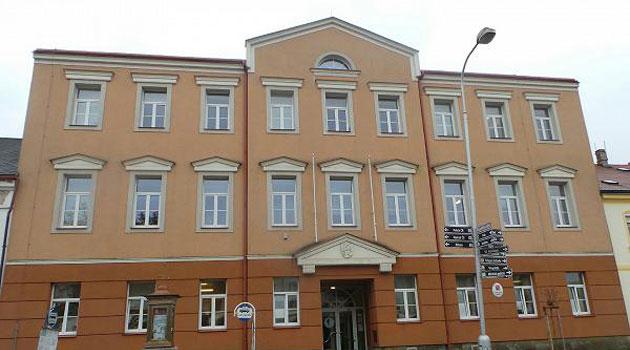Czech Republic: Romani children in a small town discuss the "special school"

The Czech town of Kostelec nad Orlicí has a population of 6 000 and a diverse composition in terms of nationalities. A refugee camp is located there and a large Romani community lives there as well.
Relations between immigrants, the majority society, and Romani people in Kostelec were the subject of a play called "Vadí – Nevadí" (Truth or Dare) which the local theater ensemble from Kostelec recently toured with, including a performance at the Archa theater in Prague. After seeing the play, news server Romea.cz decided to map the situation of Romani people in Kostelec.
Why do Romani children in Kostelec attend the "practical school"? How do they see their own futures?
What is the attitude of the school director toward inclusive education? Does discrimination occur in the town?
On the basis of our interviews with local residents we are publishing a series of four articles. In this piece we interview some of the Romani children who performed in "Truth or Dare": Kateřina (12), Kevin (10), Marie (9), Nikola (9) a Tomáš (10).
Q: What do you like to do ?
Kateřina: I like drawing and singing.
Tomáš: I like everything, but I really like physical education, mainly dancing.
Nikola: I like dancing, drawing and singing.
Maruška: I like painting the most, and performing in the theater, and sometimes also dancing.
Kevin: I like painting, football and Czech language class.
Q: What would you like to do when you are grown up?
Kateřina: A chef or a pastry chef.
Tomáš: A mason, a lumberjack or an auto mechanic.
Nikola: I’d like to do something with children, maybe in a nursery school, or be a chef.
Marie: I’d like to be a hairdresser or a saleswoman.
Kevin: I’d like to be a football player, a hockey player, or a farmer.
Q: Do you go to any hobby groups after school?
Kateřina: No, but at home I try cooking.
Tomáš: I’m in the theater. At home I am teaching myself to dance.
Nikola: I went to street dance and I’m in the theater.
Kevin: When I was six I played football with a team, but then when I was eight I had to leave the team because I was too big. Now I just go outside to kick the ball around. I am also in the theater.
Q: What kind of school do you go to? Do you like it there?
Kateřina: I go to the special school and it bothers me that everyone says it’s for disabled people. I would rather go to normal school.
Tomáš: I also go to the special school. It’s fun there, Kevin and I have a good time. The teaching is good and we can eat a snack during every break, even during the first one, but we have to leave something for the second one.
Nikola: I go to the normal school. I’m glad I go there, but sometimes the other pupils laugh at me. When we went on a field trip they laughed at my shoes, they said that I was wearing gypsy shoes. That offended me. They didn’t think I heard them, but I did. From time to time things like that happen in school, but I let it be because it doesn’t matter.
Marie: I also go to normal school and I like it. Sometimes they curse at me there, but otherwise our class is good.
Kevin: I go to special school, but the children there are always asking to borrow money from me or telling the teachers I stole something. That I don’t like, but I do like it there and I have friends from nursery school there.
Q: Do you know why you are going to special school?
Kateřina: We used to live in England and there was a different alphabet there, so I got confused.
Tomáš: My older sister went to the normal primary school, but the children pushed her onto a bench so hard that they knocked the wind out of her. My mother got scared and enrolled us into the special school.
Q: Do you have friends among the Czech children?
Kevin: I do, I always get to know people when I go out to play football.
Tomáš: I have two good friends who are Czechs, we got to know each other outside once.
Kateřina: Me too and I met them at the playground.
Marie: I have a lot of Czech girlfriends at school, it’s fun with them.
Q: Can you imagine that when you are grown up you would not work?
Nikola: No, if I didn’t work then I would seem lazy and not hardworking. I think that if we work and do our best the Czechs will see we are decent and hardworking.
Marie: If I didn’t work people would think me indecent.
Kevin: Me also not, I want to work, and not just for money, I mainly want to show that I know how.
Q: What do you think of it when someone judges someone else for being Romani?
Kevin: It’s all the same if someone is yellow, red, purple or green.
Nikola: Yeah, we’re all just people, we’re not monsters.
Tomáš: The Czechs judge us because some Romani people don’t work. They tar us all with the same brush.